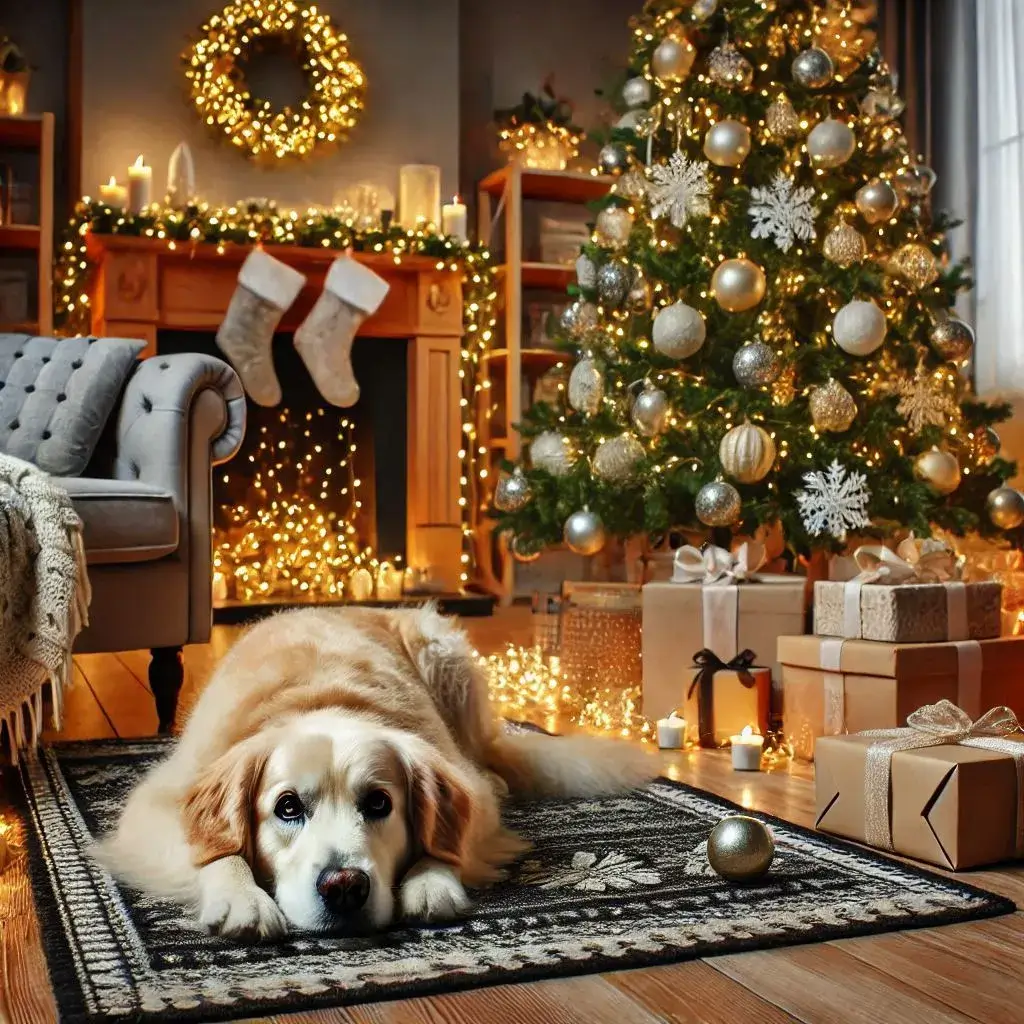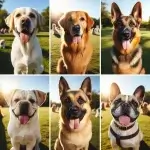The holidays are a time for joy, celebration, and gathering with loved ones. However, for dogs, this festive season can bring unique challenges and risks. From toxic foods to unfamiliar visitors, ensuring your pet’s safety during the holidays requires careful preparation and attention. This comprehensive guide will help you create a safe and enjoyable holiday experience for your furry companion.
Common Holiday Hazards for Dogs
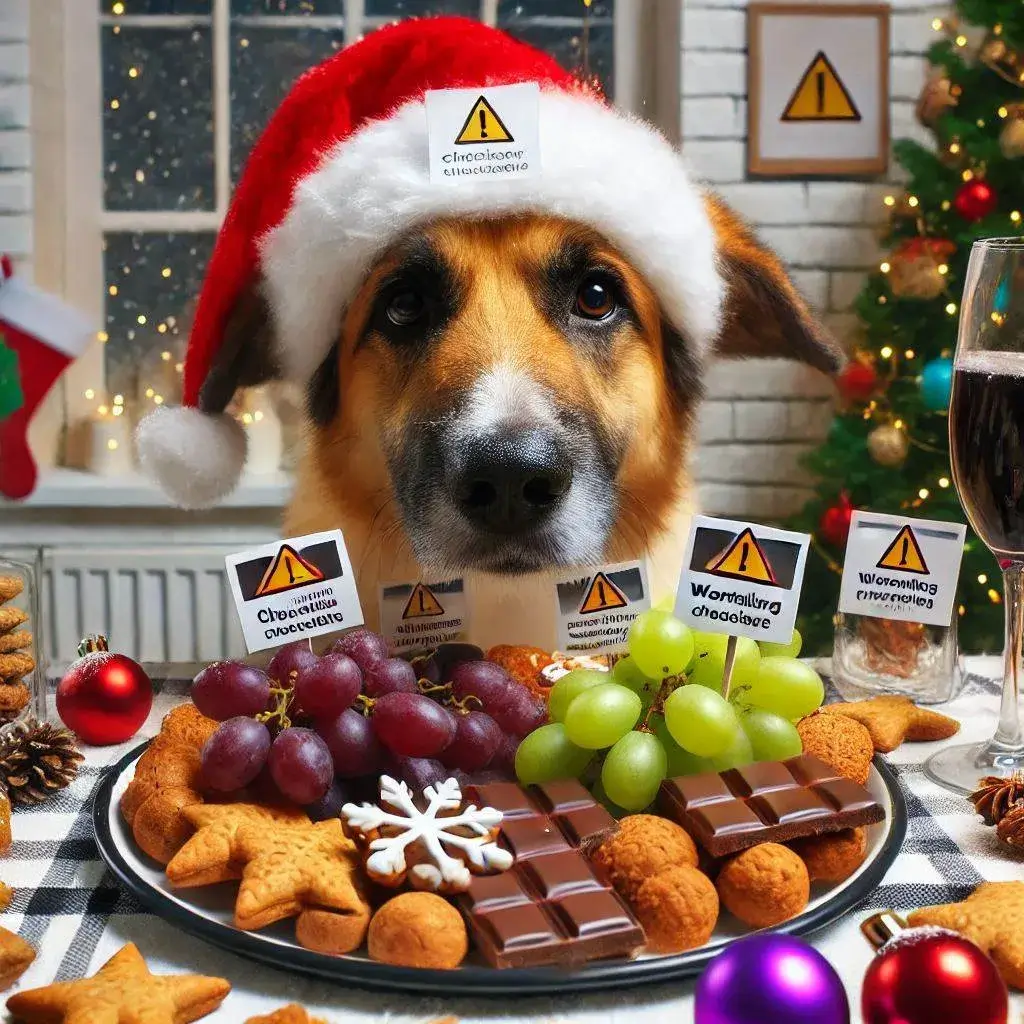
1. Dangerous Holiday Foods
Many holiday treats and traditional dishes are harmful or toxic to dogs.
- Toxic Foods: Chocolate, grapes, raisins, onions, garlic, and alcohol.
- High-Risk Items: Bones, fatty meats, and rich desserts can cause choking or pancreatitis.
2. Decorations and Ornaments
Festive decorations can be tempting but dangerous.
- Risks: Broken ornaments can cause injuries, while tinsel and ribbons may lead to intestinal blockages.
- Electrical Hazards: Chewing on string lights or exposed wires poses electrocution risks.
3. Loud Noises
Fireworks, party music, and loud gatherings can stress or frighten dogs.
- Signs of Stress: Trembling, hiding, excessive barking, or pacing.
- Tip: Provide a quiet, safe space for your dog to relax.
Preparing Your Dog for Holiday Celebrations
1. Create a Safe Space
Designate a quiet area where your dog can retreat if overwhelmed.
- Essentials: Include a comfortable bed, favorite toys, water, and a blanket.
- Access: Ensure the space is off-limits to guests and free of holiday hazards.
2. Introduce New Experiences Gradually
If hosting guests or changing your routine, ease your dog into the new environment.
- Meet and Greet: Allow your dog to meet visitors in a calm setting.
- Familiarization: Introduce decorations slowly to avoid startling your pet.
Tips for Dog-Proofing Your Holiday Decorations
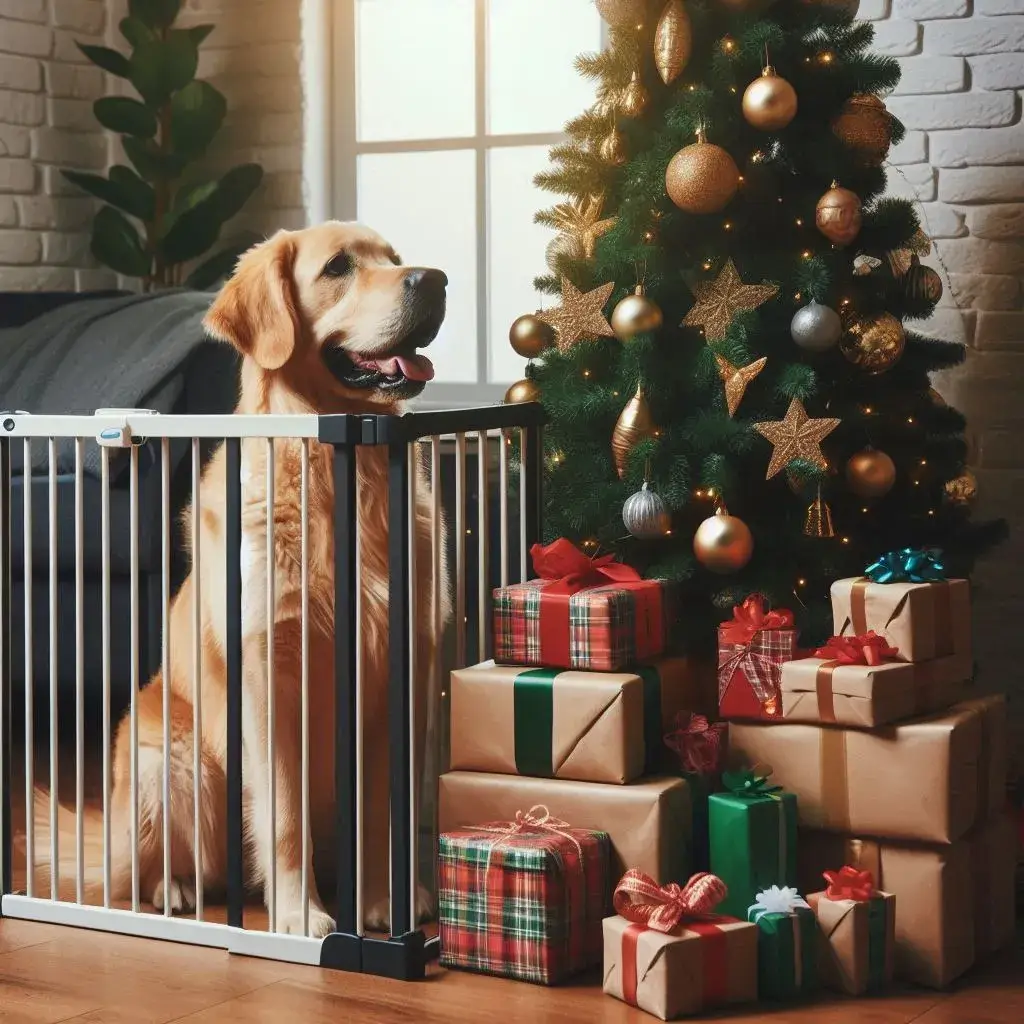
1. Secure the Christmas Tree
- Anchor: Secure the tree to prevent it from tipping over.
- Placement: Place fragile ornaments and lights higher up, out of reach.
2. Avoid Toxic Plants
- Dangerous Plants: Poinsettias, mistletoe, holly, and lilies are toxic to dogs.
- Substitute: Use artificial plants or pet-safe alternatives.
3. Manage Cords and Lights
- Use cord protectors and keep lights out of your dog’s reach to avoid chewing.
Managing Holiday Foods Around Your Dog
1. Stick to Dog-Safe Treats
- Prepare holiday-themed dog treats using safe ingredients like pumpkin or peanut butter.
2. Enforce a No-Table-Food Rule
- Ask guests not to feed your dog scraps from the table.
3. Secure Trash Bins
- Use bins with locking lids to prevent your dog from accessing discarded food.
Holiday Travel Safety for Dogs
1. Plan Ahead
- Research pet-friendly accommodations and transportation options.
2. Pack Essentials
- Include food, water, medication, toys, a leash, and waste bags.
3. Ensure Proper Identification
- Update your dog’s ID tags and microchip details with current contact information.
Keeping Your Dog Calm During Festivities
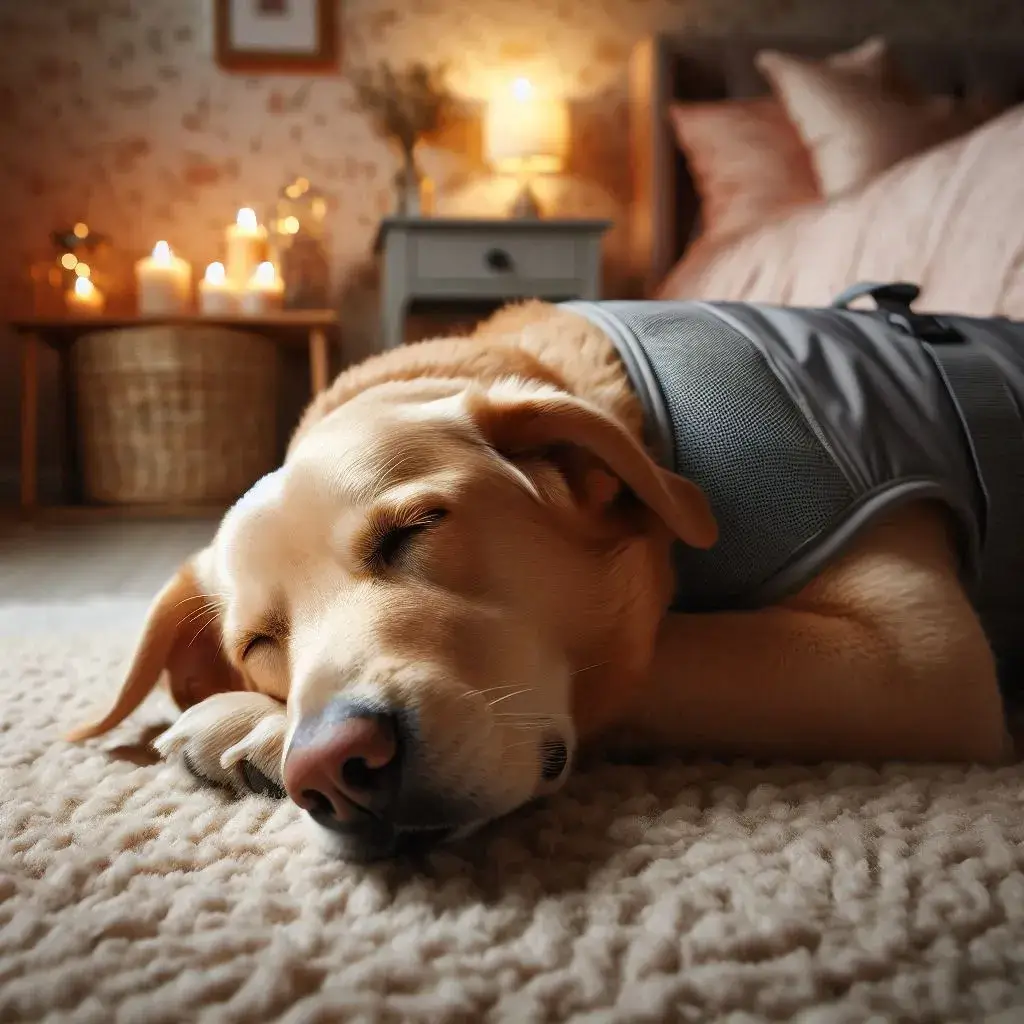
1. Use Calming Products
- Consider calming sprays, pheromone diffusers, or anxiety wraps to help your dog relax.
2. Maintain a Routine
- Stick to your dog’s regular feeding, walking, and sleeping schedules to minimize stress.
3. Supervise Interactions
- Monitor interactions with children or unfamiliar guests to prevent accidents.
Emergency Preparedness During Holidays
1. Know Your Vet’s Hours
- Keep your vet’s contact information and the nearest emergency clinic’s details handy.
2. Be Prepared for Poisoning
- Familiarize yourself with symptoms of poisoning, like vomiting or lethargy.
- Tip: Contact the Pet Poison Helpline if you suspect exposure to toxins.
3. First Aid Kit
- Include supplies like bandages, antiseptic wipes, and tweezers for minor injuries.
FAQs About Holiday Safety for Dogs
1. What holiday foods are safe for dogs?
Plain turkey, carrots, green beans, and pumpkin are safe options.
2. How can I calm my dog during fireworks?
Create a quiet space, use calming products, and play soothing music to drown out noise.
3. Can my dog eat Christmas dinner leftovers?
No, most leftovers are too rich and may contain harmful ingredients like garlic or onions.
4. What if my dog eats chocolate?
Contact your vet immediately or call the Pet Poison Helpline for guidance.
5. Should I take my dog to holiday events?
Only if your dog is comfortable with crowds and noise; otherwise, it’s best to leave them at home.
6. How do I prevent my dog from chewing on decorations?
Use bitter sprays on cords and keep tempting decorations out of reach.
Conclusion
The holidays can be a joyful time for both you and your dog if proper precautions are taken. From managing food hazards to creating a stress-free environment, a little preparation goes a long way in ensuring your furry friend’s safety and happiness. Keep your dog’s well-being at the forefront, and enjoy a safe, festive season together.
Follow us :
